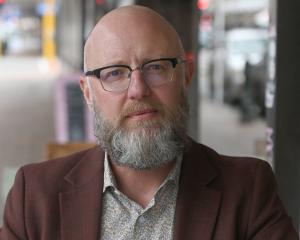
Mr Lloyd, who had worked on various infrastructure developments in the health sector for Canterbury District Health Board and throughout the South Island, most recently worked on the development and delivery of Christchurch’s Waipapa acute services building.
"I have been very fortunate to have done a couple of big ones. This one is bigger than those although it comes with all the same challenges as those."
Mr Lloyd’s predecessor, Mike Barns, has been elevated to a regional hospital redevelopment role, in which capacity he can be called upon to advise from a position of some strength, having driven the hospital project to the point where demolition is complete, design is largely done, and earthworks have just begun.
"There has been an awful lot of work been done for a long time by an awful lot of people," Mr Lloyd said
"Mike is a hell of a nice guy and he brings a lot of experience from his time in the Middle East and in Auckland [working on hospital builds] and both he and other people before him have left things set up so that we are very clear about what we need to produce and when we need to produce it by, which isn’t always the case on these big projects."
The design for the new Dunedin Hospital’s outpatient building was intended to be similar to the same facility in Christchurch, but Mr Lloyd said the inclusion of operating theatres meant there were now significant differences between the two.
Although building the new Christchurch hospital on a flood plain meant he had experience in dealing with water management issues, that was also not necessarily applicable in Dunedin, Mr Lloyd said.
"In Christchurch we build a big raft slab from concrete that was abut 1.5m thick or thereabouts, and it floats, whereas the one in Dunedin has many piles driven down into the bedrock below so that it has a stable foundation and the building is then built on those piles, so it’s a little bit different, but both are well recognised methods of building foundations."
Mr Lloyd believed there would be few difficulties in securing construction workers for the Dunedin build, having been able to maintain a workforce on the Christchurch project and the city’s energy centre through the Covid-19 lockdowns and beyond.
"I think there is a recognition that these health facilities are very important to their communities and as a result people are willing to go that extra mile to help you, from a government inc perspective.
"This building isn’t just going to be built in Dunedin, it is going to be built in New Zealand and other parts of the world and assembled in Dunedin and unless we are really clever about prefabrication and modularisation and a whole bunch of other things, it is going to be a lot more complicated than it really needs to be.
"What I am bringing to the project is a fresh set of eyes to try and bring as much of that type of thinking as we possibly can to the project."












